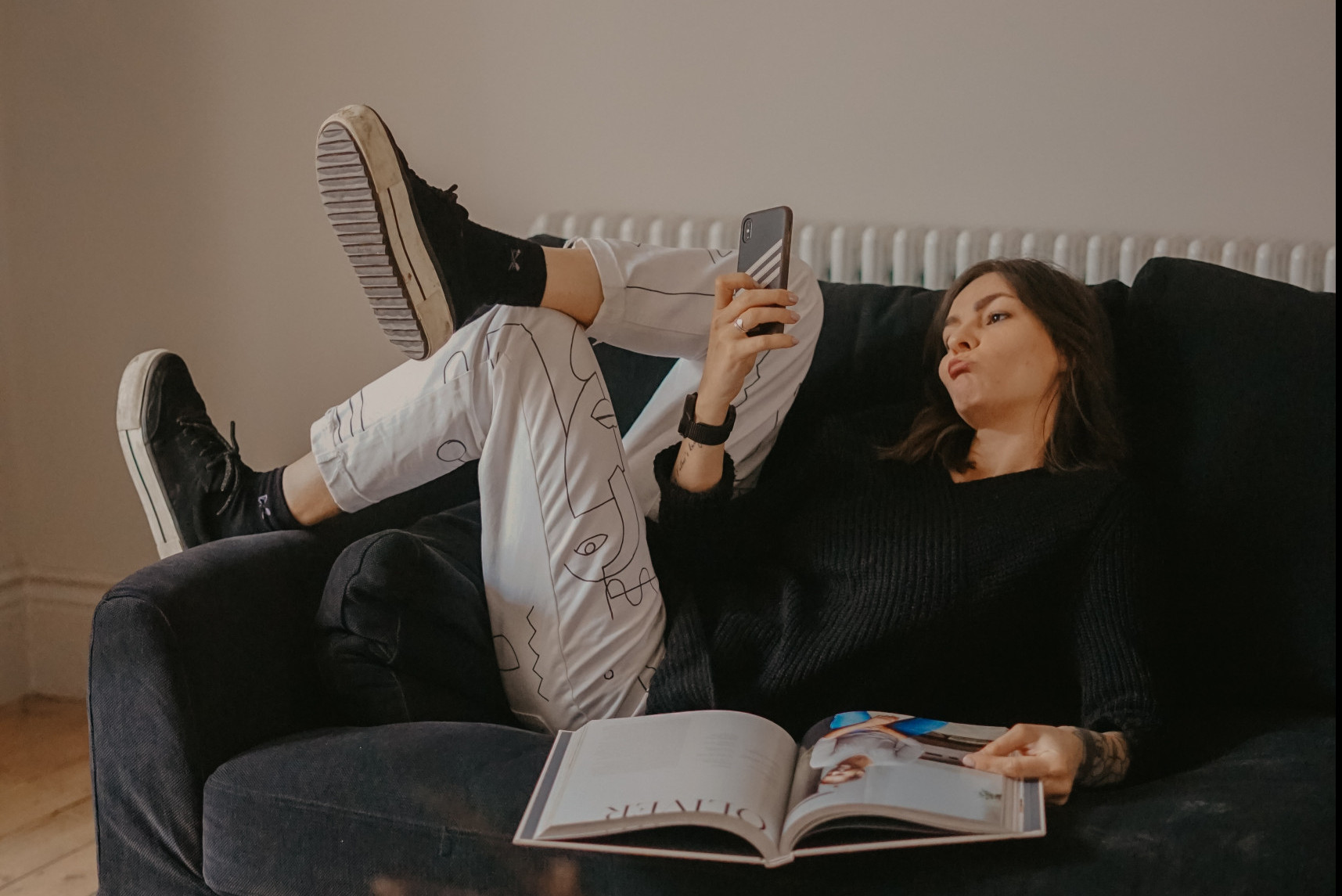Social Media and Body Image: Are Filters Fuelling Negative Body Image?
According to new research from Girl Guiding, 40% of girls aged 11 to 16 say they’ve seen images online that have made them feel insecure or less confident about themselves, increasing to 50% in girls aged 17 to 21. The research said that whilst being online has helped them keep in touch with friends and family during the pandemic, it has also introduced new pressures into their daily lives. In reference to activity online and social media, the report concluded:
“From images that damage their body confidence, to mean comments and harassment, being online isn’t always a good experience for young women. And they want to see more done to protect them from that.”
Youth Mental Health Campaigner Suzanne Samaka is pushing for action, with a petition created to protect young people with greater transparency around images shared online, promoting early intervention against eating disorders, anxiety, depression and loneliness.
If the petition is successful, the UK would follow countries like Norway who now require content creators to disclose when they’ve edited a photo, which includes when “a body’s shape, size or skin has been changed by retouching or other manipulation”.
Suzanne Samaka has launched the campaign #HonestyAboutEditing to help spread the word with the hope that together we can create an environment where people understand the truth behind the images to see online and bring an end to unrealistic body image ideals.

Suzanne’s Story and the #HonestyAboutEditing Campaign
Sadly, for the past four years, a member of our family has suffered with anorexia. It is fair to say we will never know the root cause of this and maybe neither will they, but it is apparent that they are not alone in the anxiety, depression, physical and mental health challenges that they have faced in their adolescent years. I’ve been to eating disorder in-patient clinics and I have always been shocked and saddened by how full these units are with adolescent girls and boys alike.
The pandemic has meant young people have spent more time at home and online but I must stress this isn’t only a post-pandemic problem. They are seeing more content than ever that is edited or filtered and it is having a disastrous effect on their self-esteem. The research doesn’t lie and, according to the 2017 Dove Global Girls Beauty and Confidence Report, nine out of every 10 girls in the UK with low body esteem told researchers they will skip meals and avoid seeing friends and family, or seeing a doctor.
Another survey conducted by the Royal Society for Public Health asked 14 to 24-year-olds in the UK how social media platforms impacted their health and well-being and found that Snapchat, Facebook, Twitter and Instagram were all linked to increased feelings of depression, anxiety, poor body image and loneliness. More than two thirds (68%) of young people surveyed support social media platforms highlighting when a photo has been manipulated, whether that be in the form of a small icon or watermark at the bottom of someone’s photo.
I have also been contacted by many young people who fully agree with this concept to positively support their own mental health.
Since starting the petition, I have been contacted by many teachers who have told me their experiences of conversations with their students who feel under pressure from social media perfection or crippling loneliness when they feel that their face doesn’t fit. I have also been contacted by countless parents who are terrified of how body conscious their children are, with ages starting from as young as 8 and throughout their teens. I have also spoken with many adults who have suffered their own mental health challenges in their adolescent years, signing the petition because they just can’t fathom how they would have survived against the odds that the youth of today are growing up with.
The more people I speak to about the petition, the more it makes me want to ensure there is change, protection and honesty to give our young people a fair chance in today’s world.
Now there is one thing I need to make crystal clear. I have nothing against social media. In fact, I think it can be hugely positive to all of our lives. I also have nothing against editing or filtering, it is completely each to their own. What I have a problem with is the lack of honesty, which is causing young people to believe they need to be flawless, yet striving for this is damaging their mental health. Do I believe social media is the problem for the challenges in youth mental health? No. Does it exacerbate the problem? Absolutely.
I’ll never forget being on the tube and seeing a young girl who must have been twelve or thirteen using her phone as a mirror but whilst doing so, it had a filter on. It deeply saddens me.
Mental health challenges can quickly become deeply rooted and leave scars for life. Our children and young people deserve better than that.
In trying to evoke change I have recently begun a petition on Change.org to amend the social media laws to state when an image has been filtered or digitally amended. This is now the law in a number of countries, Norway being the most recent. If it can happen there, why not in the UK?
What I am hoping this solution could do is to help our young people and the next generation to understand that these posts aren’t real and are unachievable goals to aspire to. I hope this will help them realise that their true self is more important, as well as their mental and physical health.
What I have realised is that each individual can help create positive change. It really does only take 30 seconds to put your name against the petition and then share it with your own network. The momentum of this campaign has been amazing in a few months with several MPs on board, charity organisations and individuals who are experts in their fields. Collaboration is key here. If we all pull together, we really can protect the next generation. I’m a parent. An auntie. A person who cares. That is all it takes. Somebody to do something.
Whilst my family has been my first-hand experiences of mental health challenges in young people, I have just seen and heard one too many examples to not try and do something about it.
Help Suzanne change social media laws to state when content is filtered or edited and sign the petition and follow the campaign at #HonestyAboutEditing @protectyouthmentalhealth
If you haven’t already, check out our ‘Think Before You Scroll‘ blog post where we talk about the steps to take for a more mindful approach to social media.


